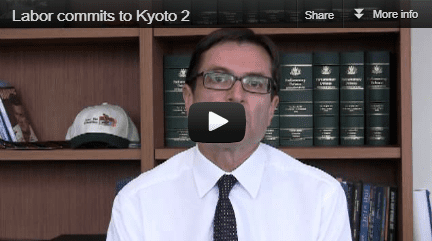Oxfam Australia has welcomed the Government’s intention to join a second phase of the Kyoto Protocol.
The Kyoto Protocol, whose initial seven-year commitment period expired this year, provided the foundations for a rules-based, global response to climate change. Its continuation, by way of a second commitment period, provided the necessary legal and political bridge to the fair, ambitious and binding agreement that all countries have agreed to finalise by 2015.
Minister Combet’s clear signal today that Australia intends to sign-up to ‘Kyoto2’ and remain part of a global climate solution is a positive step. It will help create positive momentum going into this month’s crucial UN Climate Summit in Doha.
Oxfam Australia is also pleased to see the Government reaffirm its commitment to increase its emissions reductions target to 25 per cent by 2020 (on 2000 levels) in the context of a global deal. However, Australia will need to prepare itself for deeper cuts in the near future. Australia’s independent Climate Change Authority will review and make recommendations on Australia’s emissions reduction targets in early 2014. Current targets, including Australia’s, fall a long way short of what is needed to limit warming to 2C – the threshold for a safe climate.
We are also concerned at the deep uncertainty surrounding sources of climate finance for developing countries as this month’s UN Climate Summit in Doha approaches. In 2009, developed countries committed to raising US $100bn a year by 2020 to assist the developing world in adapting to climate change and implementing low carbon development strategies. Australia has played a strong role over the first three years, known as the Fast Start Finance period, providing a fair share towards the global goal of US $30bn between 2010 and 2012. But like most developed countries, it has made no firm, quantified commitments beyond the Fast Start period.
Climate change is a major development challenge. We are seeing vulnerable communities facing greater droughts, floods, hunger and disease. Without stronger commitments to cut emissions and provide finance for adaptation, 50 years of development gains in poor countries may be lost.
Kelly Dent – Oxfam Australia climate change policy adviser



